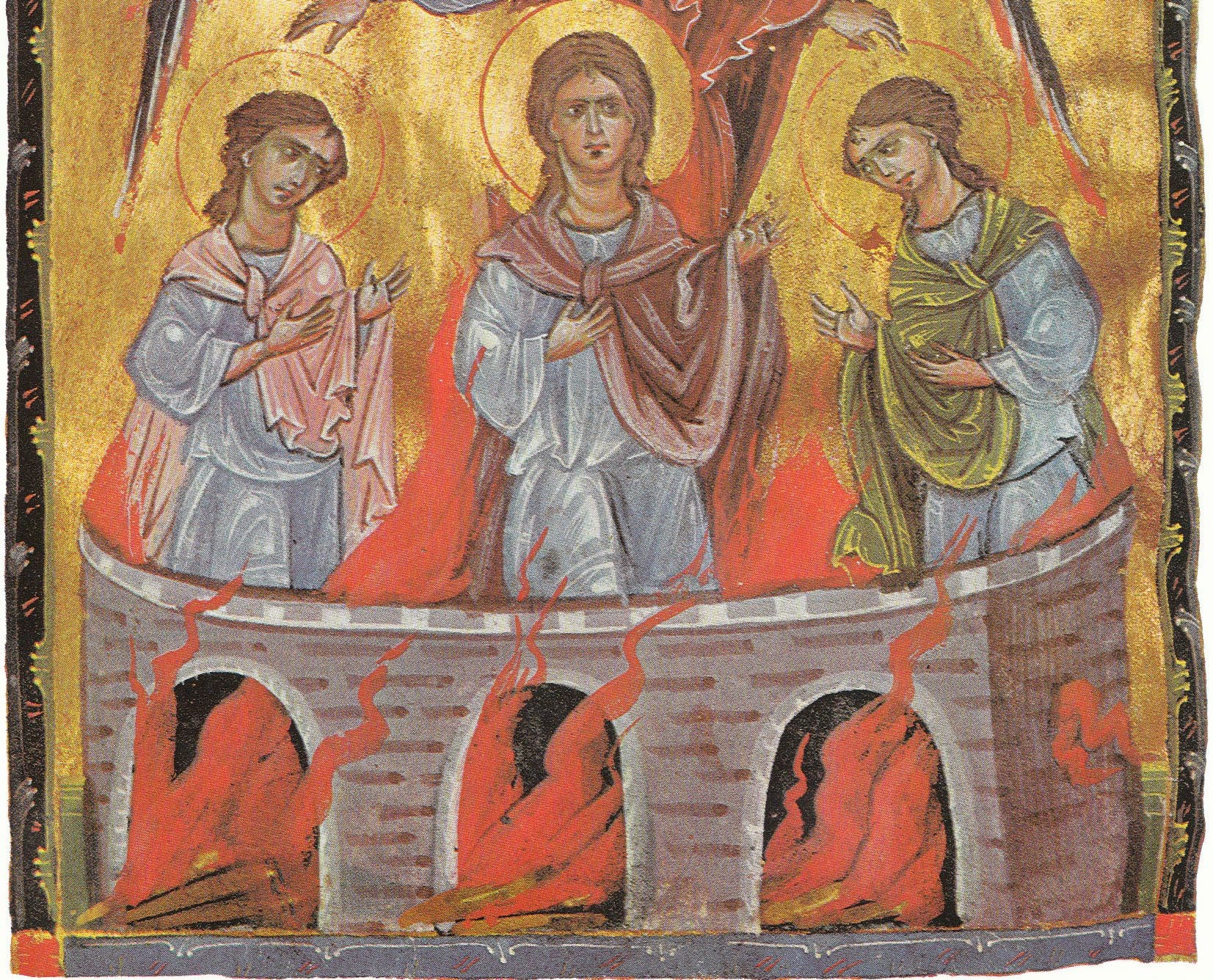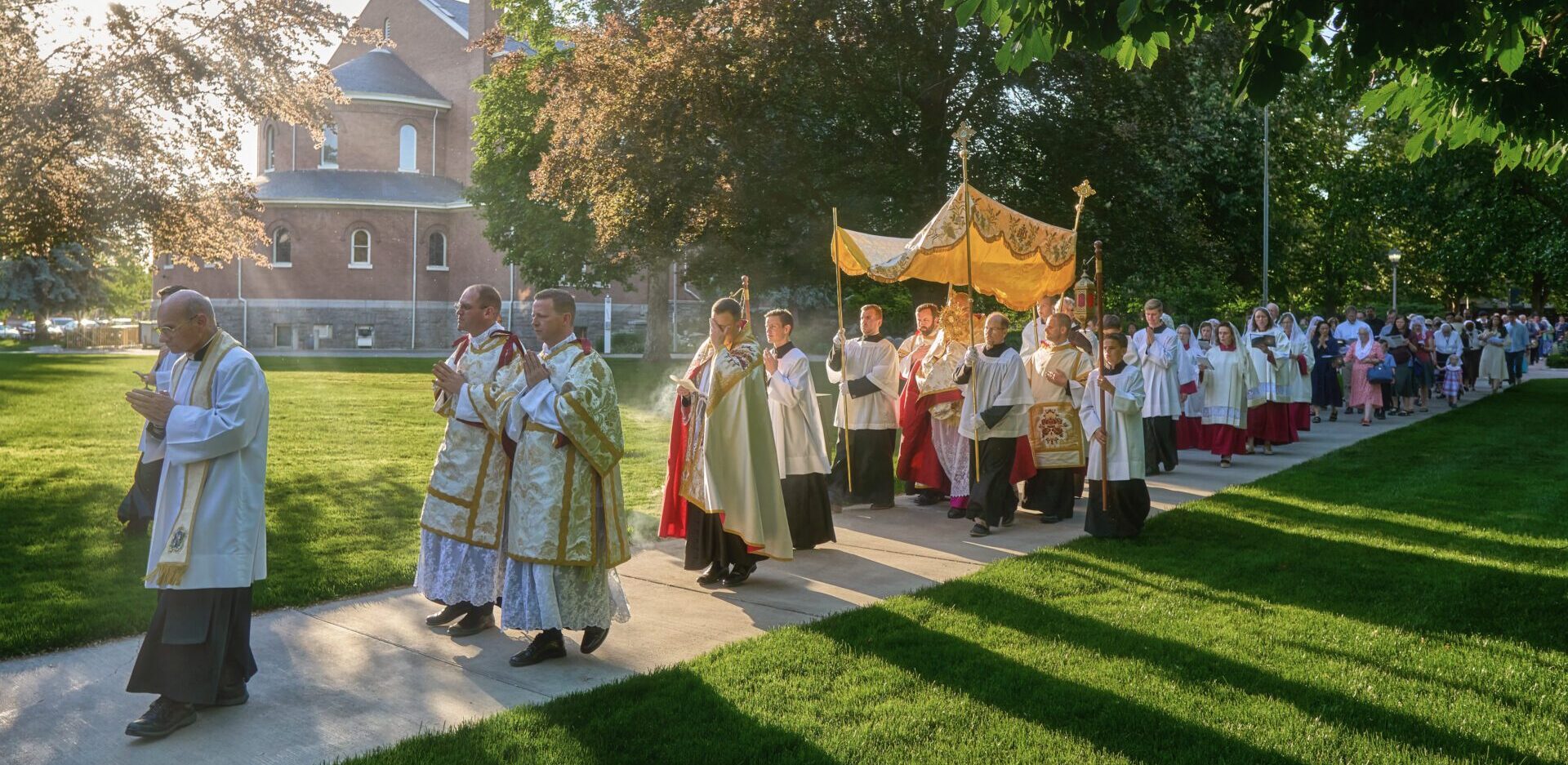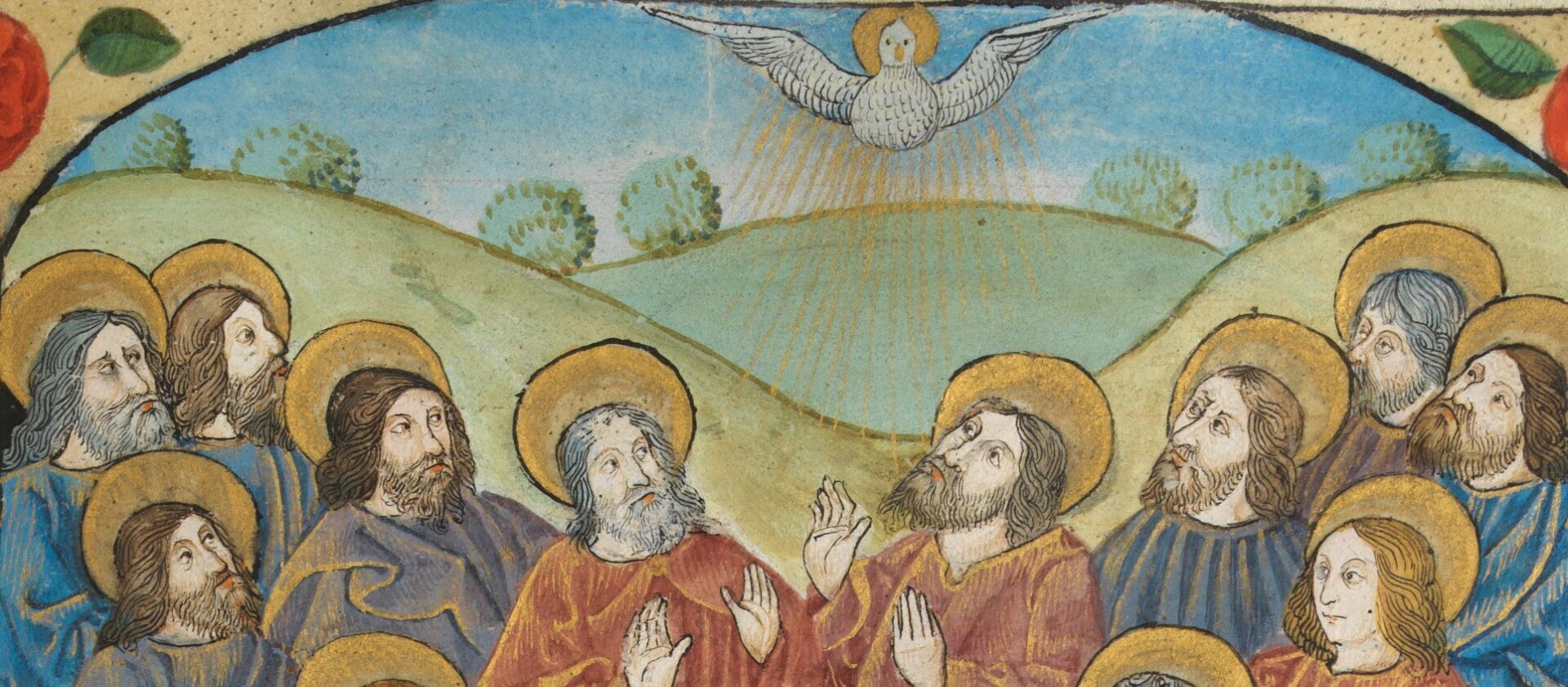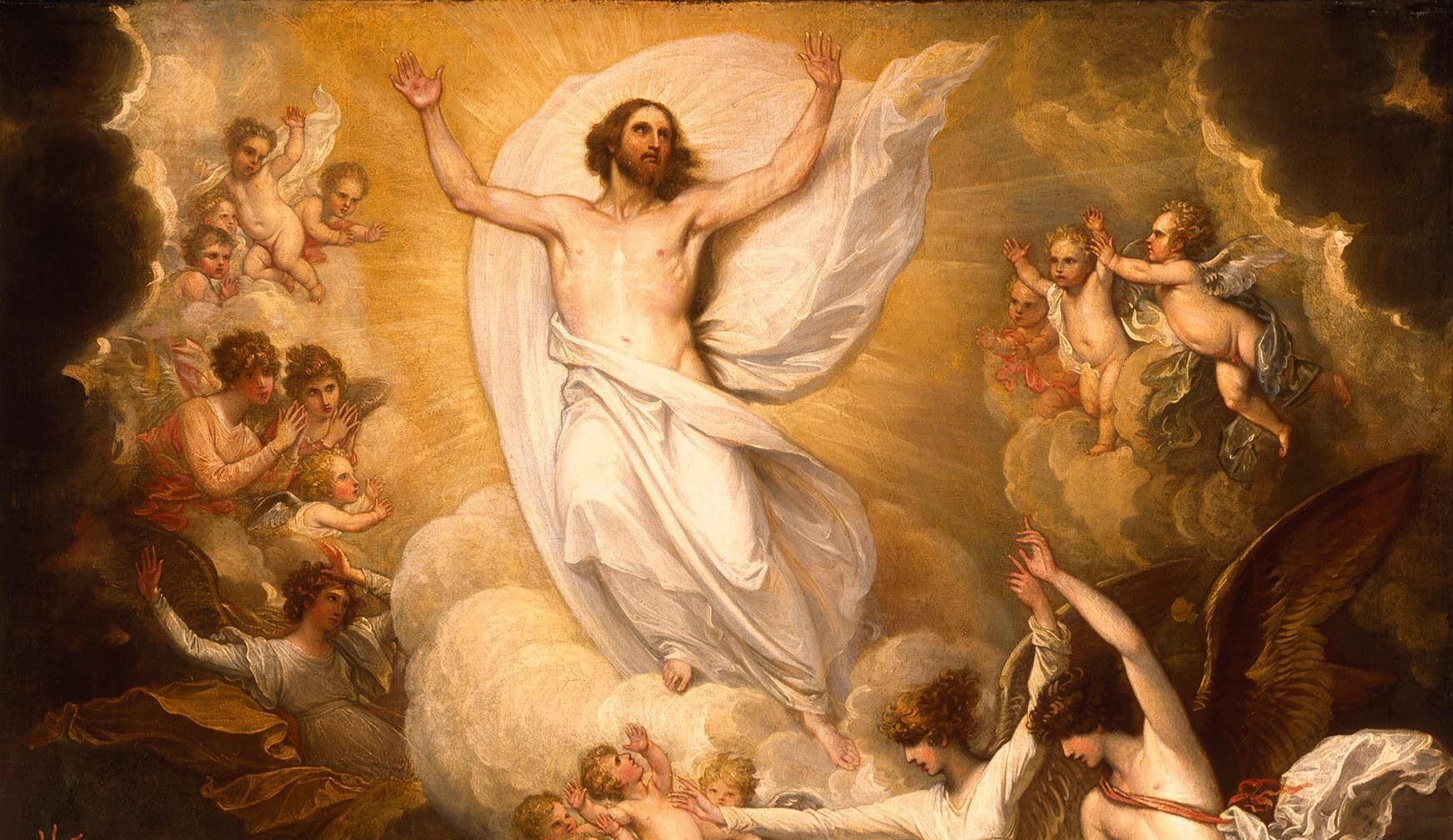The next silent prayer during the preparation of the altar is an offering of the sacrifice: “With humble spirit and contrite heart may we be accepted by you, O Lord, and may our sacrifice in your sight this day be pleasing to you, Lord God.” There is a co-mingling of the various actions taking place: the priest’s self-offering along with the offering of the assembly, both symbolized by the bread and wine, along with the unbloody sacrifice that will take place through the Eucharistic prayer, namely the re-presentation of Christ’s self-sacrificial offering on the Cross. It is especially the magnitude of the ultimate sacrifice that presses the priest to acknowledge his unworthiness and to humble himself and offer his contrite heart.
This prayer is drawn from the words of the three young men in the fiery furnace in the Book of Daniel: “But with contrite heart and humble spirit let us be received; As though it were burnt offerings of rams and bulls, or tens of thousands of fat lambs, So let our sacrifice be in your presence today and find favor before you; for those who trust in you cannot be put to shame. And now we follow you with our whole heart, we fear you and we seek your face. Do not put us to shame, but deal with us in your kindness and great mercy” (Daniel 3:39-42).
It can be a great help if we place ourselves in the context of a furnace heated seven times as we offer this prayer. It is a prayer of desperation as much as it is a prayer of great confidence. It is a prayer in which we give everything we have, knowing how little that is, at the same time that we, with great hope, “seek [God’s] face.” With this prayer, we promise to follow him “with our whole heart” while we also know that we cannot do that without his “kindness and great mercy.” With these conjunctions of opposites, we perfectly capture what is happening at this moment in the Mass: although we are dying, in great desperation we are offering everything we have, which we know it is practically nothing—only a little bread and a little wine. At the same time we count on God’s mercy, and we are begging for him to manifest his Presence to us and save us as we fear him and seek his face. Furthermore, we are making a promise for how we will conduct ourselves in the future, should he be willing to accept our sacrifice. We will follow him with our whole heart and walk in the fear of the Lord.
We cannot overlook the connections with Psalm 51 either: “My sacrifice to God is a contrite spirit, a humbled, contrite heart O God you will not spurn” (Psalm 51:19). This psalm was written by David after his great fall into adultery and murder, and so in reciting this verse, the priest calls to mind the dregs of sinful humanity and offers up his contrite heart on his own behalf and on behalf of all who need God’s mercy.
Although the offertory prayers of the Novus Ordo have been significantly reduced from the 1962 Missal with the removal of the Suscipe Sancte Pater, the Offerimus, the Veni Sanctificator, and the Suscipe Sancta Trinitas, there is a richness in the retention of this one offertory prayer prayed silently by the priest. As he bows profoundly before the altar and recites this prayer, the priest can place himself and the congregation in the fiery furnace with Azariah and his companions and cry to the Lord from his heart. Our need for deliverance and redemption is no less significant now than it was thousands of years ago, but our hope is far greater because we are able to make this Eucharistic offering and have absolute confidence that God will come to us and rescue us, because he has defeated all our enemies and he “desires all men to be saved and to come to the knowledge of the truth” (1 Timothy 2:4).
Concretely, we can call to mind and even let our hearts be filled with the painful sentiments of all that threatens us in our personal lives as well as at local, national, and international levels. Because of the profound bow that the priest makes, he also signals to the congregation that he is making this offering and alerts those who are watching him to make a similar offering and to pray for the salvation of the whole world.
For previous instalments of Father Hicks’s The Quiet that Speaks series, see:
- Introduction to the series and the examination of the prayer Munda cor meum (“Cleanse my heart”)
- Per evangelica dicta (“Through the words of the Gospel”)
- Per huius aquae et vini mysterium (“By the mystery of this water and wine”)



